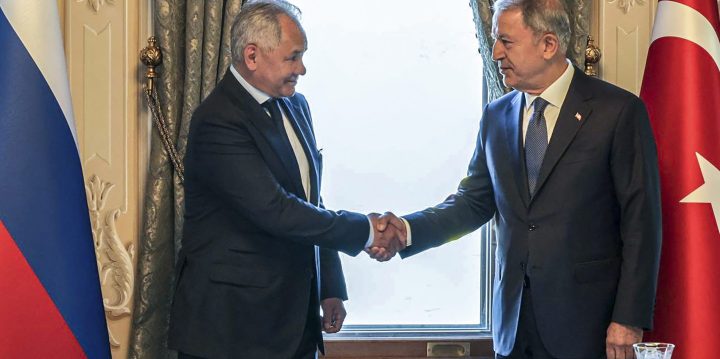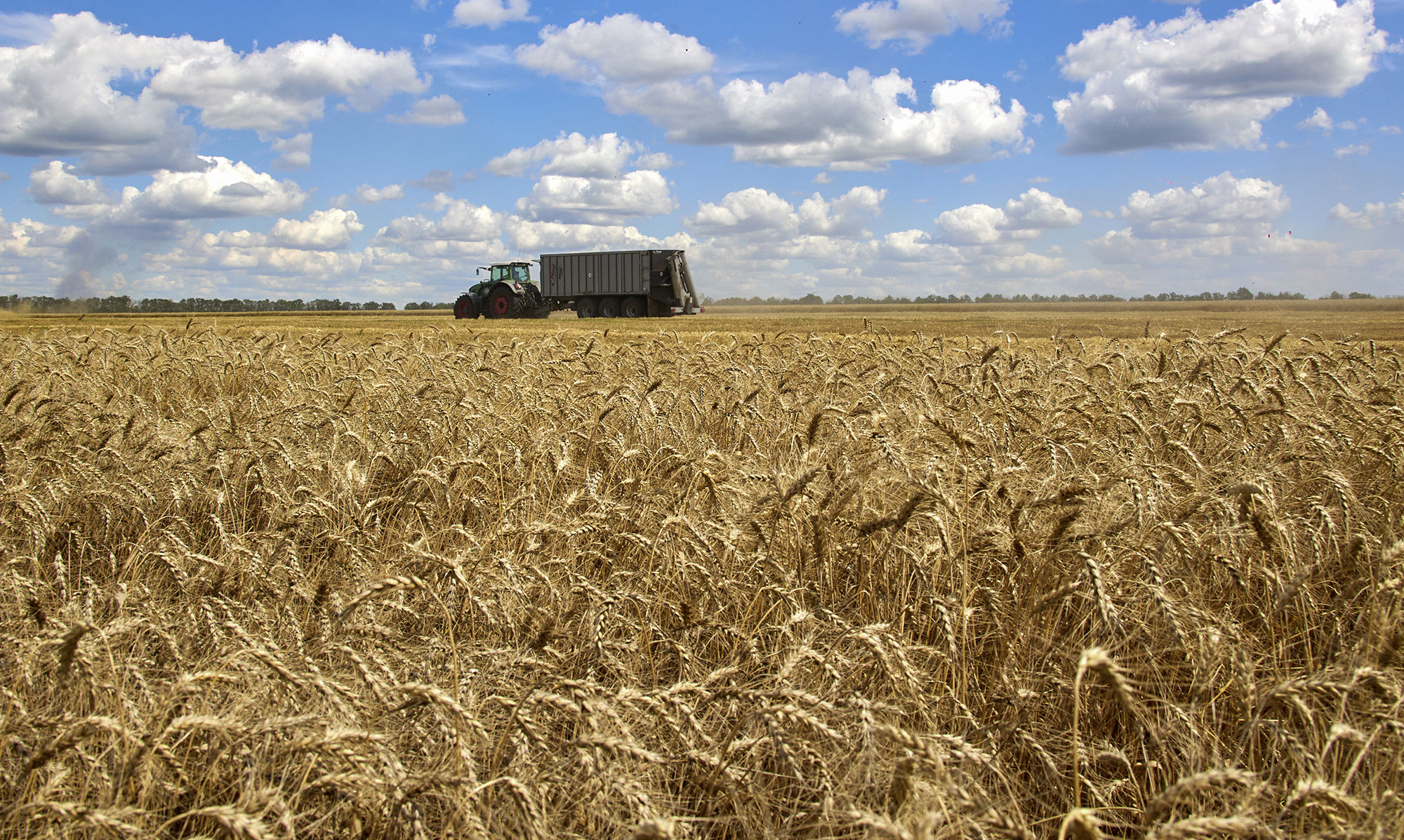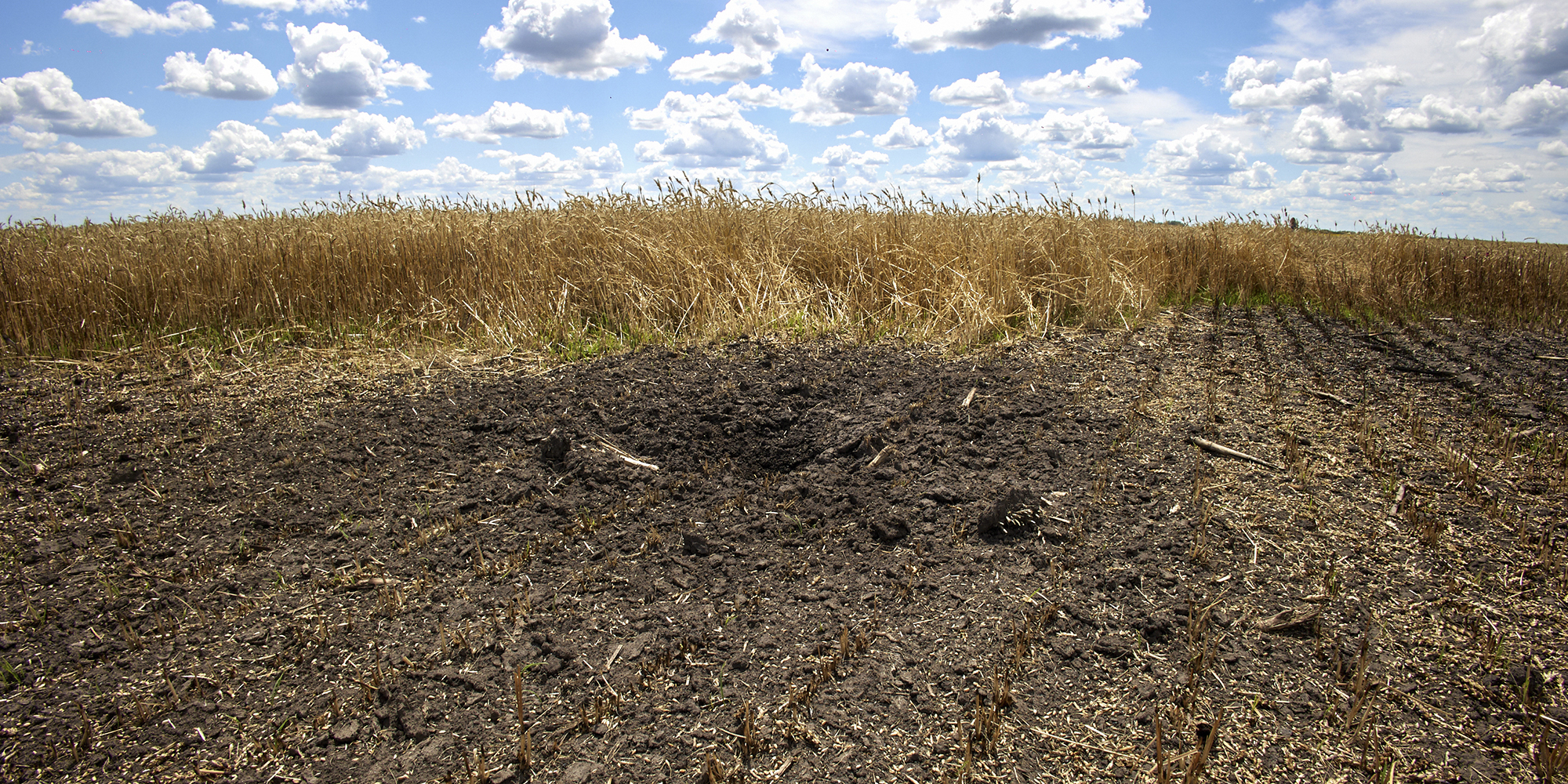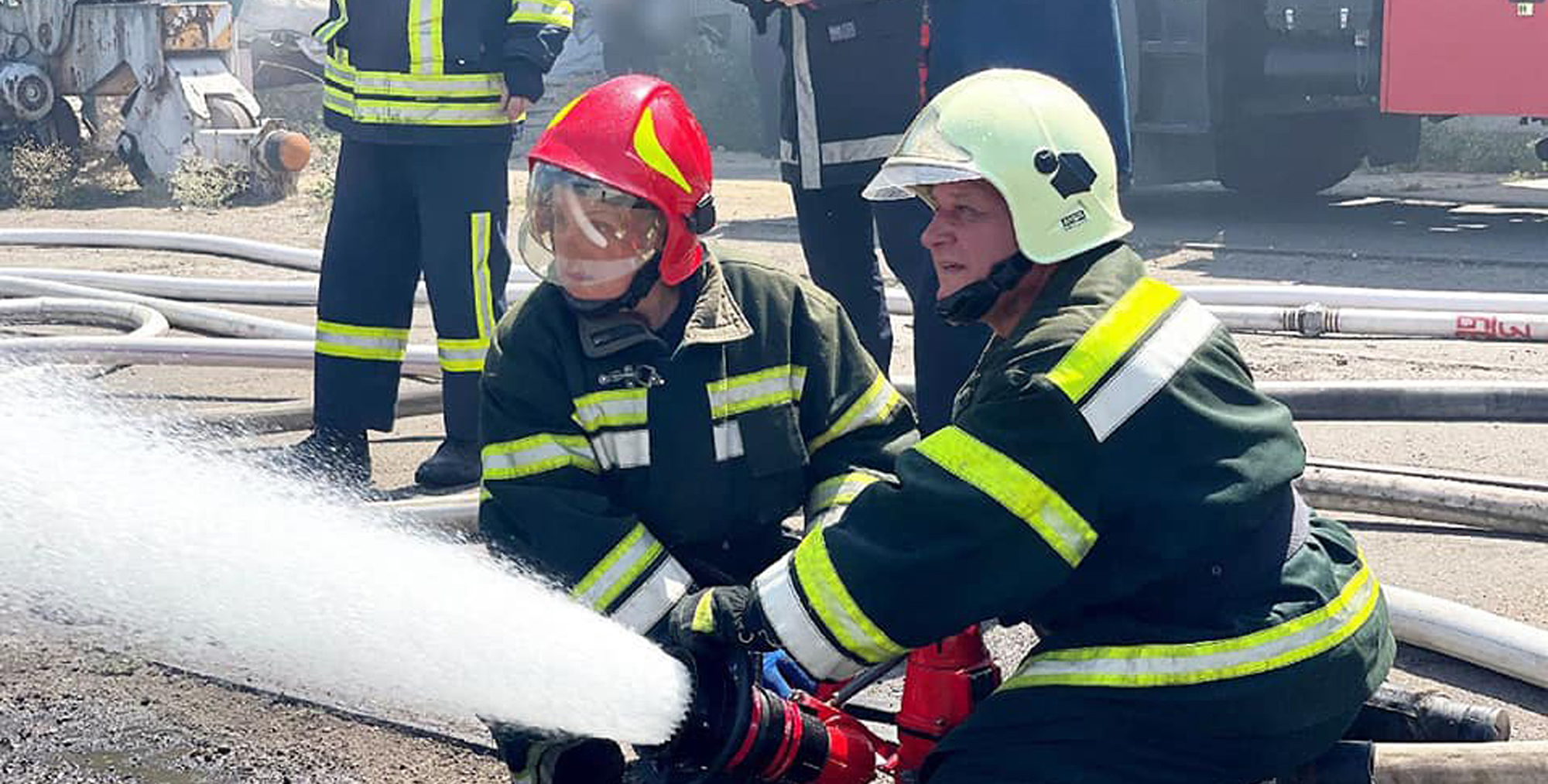WAR IN EUROPE ANALYSIS
Russia is sacrificing its economy and military for Putin’s dream of empire

The Russian invasion of Ukraine grinds on, but there is a faint glimmering on the horizon of at least one hopeful sign. Meanwhile, the costs to Russia of Vladimir Putin’s war of choice continue to mount.
Perhaps the right metaphor for the consequences of this ongoing invasion of Ukraine by Russia are Charlie Brown’s frustrations when Lucy pulls the football away from him just before he can kick it. Or, maybe, it is the African story of the frog and scorpion who are about to cross a river, when, at the midpoint, the scorpion stings the frog. The scorpion says he couldn’t help it because “it is my nature”. Of course, the frog dies from the poison and the scorpion drowns because he cannot swim.
As we look on at the ongoing horrors of Russia’s invasion of Ukraine, as city after city is pummeled by cruise missiles and rockets, we begin to wonder if the pursuit of this war is drawing on something in Russia’s way of warfare. (Perhaps I am being infected by the imagery of Anthony Beevor’s new book about the Russian Revolution and subsequent civil war with its devastation and horror as the fighting ground on and on, but this Russian war also seems as if it is unlikely to end any time soon.)
Nevertheless, amazingly, in the midst of all the gloom and devastation, one faint ray of sunshine broke through last week. A Turkish/UN-brokered deal was reached that would allow shipments of grain from Ukrainian ports like Odesa to feed an increasingly hungry world.

A harvest combine collects wheat at a field about 25km from the frontline in the Chuhuiv region of Kharkiv area, Ukraine, 19 July 2022. Ukraine has logistical problems exporting its harvest to the world market due to the Russian invasion. (Photo: EPA-EFE / Sergey Kozlov)
In more peaceful times, Ukrainian exports of grain and edible oils have been major contributors to global food stocks as a bounty from the extraordinarily fertile Ukrainian soil. As a result, Ukraine’s grain has also been crucial for various UN emergency relief efforts — especially for countries in the Middle East and Africa.
Meanwhile, however, the Russian invasion has already made many Ukrainian Black Sea ports unusable for grain exports, even if Russian troops had not yet been able to reach the major city and port of Odesa.
To ward off possible seaborne Russian attacks, the Ukrainians had sown mines in the seaward approaches to its ports; Russian naval patrols (now minus its sunken flagship, the Moskva) have carried out their blockade of Ukraine’s ports; Russian forces carried out landings (and now have lost their toehold) on the strategically situated Snake Island, and they have continued to launch barrages of cruise missiles and other aerial weaponry on Ukrainian coastal cities — as well as many other Ukrainian targets.
Many of these attacks seemed to have been in lieu of the Russian ability to carry out sustained military operations much beyond a creeping advance through the two Donbas provinces in the easternmost part of the country.
War of attrition
Western military strategists and analysts now seem to feel that with the Russian advance on Kyiv stymied, and with some astonishing losses of manpower and materiel by the Russians, the invasion has turned from being a war of annihilation (of the Ukrainian forces) to one of mutual attrition.
In that version of events, outcomes become more dependent on troop (and civilian) morale; on the ability of the respective armies to bring to bear manpower and the best possible weapons against their opponent, and on the ability of the military’s leadership to adapt flexibly to the evolving fighting conditions.
Moreover, the continuing flow of hi-tech weaponry to Ukrainian forces from the West — and the Ukrainians’ evident ability to make increasingly effective use of such weapons — may mean the two sides are now ever more evenly matched, despite the disparities in population and GDP.
Relative equality on the battlefield does not bode well for an invading force.
In a contest of evenly matched forces, the advantage may go to the side defending its homeland and people — as long as military and civilian morale does not break. Until now, at least as far as Ukraine is concerned, it has not.
By contrast, there are persistent rumours of Russian soldiers engaged in the kinds of behaviour against orders and their officers that is typical in history when an army’s personnel have little or no idea why they are in that fight (think of the Americans in Vietnam). This is despite the Russian president’s public importuning of his military to press on until final victory — whatever that may look like.

A shellhole after Russia bombarded a field of wheat about 25km from the frontline in the Chuhuiv region of Kharkiv area, Ukraine, on 19 July 2022. (Photo: EPA-EFE / Sergey Kozlov)
While deadly ground fighting continues on fronts in the south and east, increasingly the major effort by the Russians now largely seems to comprise shock aerial bombardments that have only tenuous connections to military or strategic objectives. Schools, apartment buildings, hospitals, theatres, passenger rail terminals and shopping malls do not qualify as military targets, save as a way to terrorise a civilian population.
Given the foregoing, it has seemed there was only a small likelihood of any let-up in the invasion, and that the war would continue until either the Russians gave up on their primary goal of reducing the core of Ukraine to a sullen, 21st-century vassal state, and with significant chunks of the nation absorbed outright into Russia, and in the consolidation of the twilight circumstances of those “independent” republics in the Donbas.
Alternatively, there remains the possibility the Ukrainians might manage to fight the Russians to enough of a draw that Moscow simply declared its objectives had been achieved, and then withdrew to its status quo ante borders, save for the Donbas and Crimea and let an acrimonious peace negotiation settle things.
Grain agreement
And then, mirabile dictu, weeks of patient diplomatic effort seemed to pay off as the Turkish government and the UN secretary-general brokered an agreement between Russia and Ukraine to establish safe shipping corridors to bring Ukrainian grain to a waiting world. On 22 July, the agreement was signed, even though it clearly was not sealed with a kiss — let alone a handshake or even a wan, tight smile — between the combatants.
The agreement would be closely monitored by Turkey and the UN and would obviously require the blockading Russian ships to permit grain bulk freighters to transit the corridors, as well as provision of information from Ukraine about those minefields to allow ships to make those transits safely.
Turkey obviously has a major role in all of this, because incoming and departing ships must transit the narrow Dardanelles and Bosphorus waterways dividing European and Asiatic Turkey, and connecting the Black Sea to the Aegean and Mediterranean Seas — as they head to the rest of the globe.
But ship owners and operators must be prepared for sailing through what effectively will remain a war zone. There would clearly be the possibility of devastating mistakes as a result of unmoored, drifting mines, or mistaken identification of ships and their cargoes, as the agreement would only permit grain-bearing vessels to use the water corridors.
If not a major move towards ending the conflict, still, this minor triumph had seemed unachievable just a few weeks earlier. Just prior to the announcement, The Economist had, in pointing out likely difficulties, noted, “the proposed deal would create two “co-ordination centres” staffed by officials from Russia, Ukraine, Turkey and the UN. They would inspect and oversee the passage of cargo ships in and out of Ukrainian ports.
The centres would be in Istanbul and perhaps in Odesa, which raises the question of who would represent Russia there. Another sticking point is Ukraine’s demand for a commitment that Russia stop attacking its ports. Ukraine will open only narrow sea corridors, to prevent a Russian attack from the sea.
Questions remain
Many questions remain: who would do the de-mining; how much repair do the ports require; will shipping firms trust assurances that they will be safe, and will Ukrainian cargo need to be trans-shipped in Istanbul?
“Markiyan Dmitrasevych, Ukraine’s deputy agriculture minister, says about 18m tonnes of grain await export. In the first four months of the war, Ukraine shifted 5.2m tonnes — roughly the amount it used to ship in just a month — via alternative routes, mainly through ports on the Danube river but also by rail and road.
“A Russian missile damaged a bridge at Zatoka on July 20th, which may curb exports further. With 60m tonnes expected from this autumn’s harvest, Mr Dmitrasevych says Ukraine will lack storage for 15 million-18m tonnes. If the Black Sea ports remain closed, much food will be left to rot.
“Meanwhile, Ukraine accuses Russia of stealing grain from land it occupies; it also chides Turkey for allowing Russia to ship the cargo through the Bosphorus or sell it in Turkey.”
Nevertheless, such a vast amount of grain released to a hungry world would be no small thing.
Missile strikes
But almost as soon as the accord was announced, several Russian missiles slammed into Odesa port facilities, in what must be seen as a violation of the just-signed agreement. (There was apparently no serious damage and, although there were injuries, there were no fatalities — either by design or luck on the part of those who fired the rockets.)

Firefighters work to put out a fire in the port of Odesa, southern Ukraine after a Russian missile attack on 23 July, shortly after the signing of a landmark deal to aid grain exports and ease an international food crisis. (Photo: EPA-EFE / State Emergency Service of Ukraine Handout)
But just imagine the impact of further Russian missile strikes in the near future, once grain shipments actually began, on a third country’s bulk carrier loaded with grain or edible oil, and crew casualties from such an attack. Then there would be an unwillingness of ship owners and operators to carry shipments of Ukrainian crops. The end of grain shipments would be the likely outcome.
After the two blasts, international criticism was fierce.
The UN spokesperson noted, “The Secretary-General (António Guterres) unequivocally condemns reported strikes today in the Ukrainian port of Odesa. Yesterday, all parties made clear commitments on the global stage to ensure the safe movement of Ukrainian grain and related products to global markets. These products are desperately needed to address the global food crisis and ease the suffering of millions of people in need around the globe.”
Not surprisingly, Ukrainian President Volodymyr Zelensky added, “This proves only one thing: no matter what Russia says and promises, it will find ways not to implement it (the grain deal).”
The Russians had initially declined to speak about the missile strikes at all, choosing only to outline progress in their invasion, but their foreign ministry spokesperson, Maria Zakharova, flying a flag of some real whataboutism, eventually responded to the UN statement, saying, “It is awful that UN Secretary-General António Gutteres does not ‘unequivocally’ condemn also the Kyiv regime’s killing of children in Donbas.”
Admission of guilt
By Sunday, however, Russia admitted to the attacks, but insisted they were designed to destroy a ship filled with Western weapons. (Given the Russian blockade, one wonders how such a ship managed both to violate Turkish sailing controls and to cruise through the Black Sea to Odesa.)
Meanwhile, in an effort to steady a now-rocking ship of the agreement they had helped broker, the Turkish defence minister said, “they (Ukrainian officials) stated that one of the missile attacks hit one of the silos there, and the other one fell in an area close to the silo, but there was no problem in the loading capacity and capability of the docks, which is important, and that the activities there can continue.”
The Turkish minister added, “the Russians told us that they had absolutely nothing to do with this attack, and that they were examining the issue very closely and in detail. The fact that such an incident took place right after the agreement we made yesterday regarding the grain shipment really worried us.” The Russians first told a porky — and then a second one, it seems.
Meanwhile, German, American, British and EU spokespersons were less restrained in their condemnations of the missile attacks, calling them “cowardly” and “outrageous”, among the gentler terms they used. At this point, it is still not clear when grain shipments will actually commence moving through those safe corridors in the Black Sea.
Even if shipments do begin, those two missile strikes could easily be read as a heads-up that shipments could be interrupted at will if the Russians chose to do so. Should that happen, it would — at least potentially — put the UN and many other nations in the position of imploring Ukraine to bend a knee towards Russian positions. (Observant readers may also recall hand-wringing over the recent, brief interruption in gas shipments to Germany from Russia, and concerns about whether gas transmission would even continue.)
And so here we are. Fighting continues even as Ukrainian forces are being bolstered with some of the best weapons available in Western arsenals; and Russian troops are largely — but not totally — stalemated, even as their aerial assault on civilian targets continues unabated.
Ring of sanctions
While Russia has put a brave face on its economic circumstances from the tightening ring of sanctions, the reality is that not all is well in Vladimir Putin’s kingdom.
Yale University management scholars Jeffrey Sonnenfeld and Steven Tian wrote in Foreign Policy on 22 July, “Five months into the Russian invasion of Ukraine, there remains a startling lack of understanding by many Western policymakers and commentators of the economic dimensions of President Vladimir Putin’s invasion and what it has meant for Russia’s economic positioning both domestically and globally.
“Far from being ineffective or disappointing, as many have argued, international sanctions and voluntary business retreats have exerted a devastating effect over Russia’s economy. The deteriorating economy has served as a powerful if underappreciated complement to the deteriorating political landscape facing Putin.
“That these misunderstandings persist is not entirely surprising given the lack of available economic data. In fact, many of the excessively sanguine Russian economic analyses, forecasts, and projections that have proliferated in recent months share a crucial methodological flaw: these analyses draw most, if not all, of their underlying evidence from periodic economic releases by the Russian government itself. Numbers released by the Kremlin have long been held to be largely if not always credible, but there are certain problems.
Cherry-picked data
“First, the Kremlin’s economic releases are becoming increasingly cherry-picked — partial and incomplete, selectively tossing out unfavourable metrics. The Russian government has progressively withheld an increasing number of key statistics that, prior to the war, were updated on a monthly basis, including all foreign trade data.
“Among these are statistics relating to exports and imports, particularly with Europe; oil and gas monthly output data; commodity export quantities; capital inflows and outflows; financial statements of major companies, which used to be released on a mandatory basis by companies themselves; central bank monetary base data; foreign direct investment data; lending and loan origination data; and other data related to the availability of credit. Even Rosaviatsiya, the federal air transport agency, abruptly ceased publishing data on airline and airport passenger volumes.
“Since the Kremlin stopped releasing updated numbers, constraining the availability of economic data for researchers to draw upon, many excessively rosy economic forecasts have irrationally extrapolated economic releases from the early days of the invasion, when sanctions and the business retreat had not taken full effect. Even those favourable statistics that have been released are dubious, given the political pressure the Kremlin has exerted to corrupt statistical integrity.”
The authors go on to dissect nine popular myths about the way Russia is dealing with the growing array of economic strictures, which can be read in detail here.
They conclude by noting that “Russia’s economy has been severely damaged, but the business retreats and sanctions applied against Russia are incomplete. Even with the deterioration in Russia’s exports positioning, it continues to draw too much oil and gas revenue from the sanctions carveout, which sustains Putin’s extravagant domestic spending and obfuscates structural economic weaknesses… [But] looking ahead, there is no path out of economic oblivion for Russia as long as the allied countries remain unified in maintaining and increasing sanctions pressure against Russia.”
Taken together, what these factors point to is the likelihood that a shadowy debate inside Russia, inside its government, indeed, inside the most powerful offices in that government, must be brewing over whether continuing this war for a rebirth of Peter the Great’s 18th-century empire is worth the destruction of Russia’s economic circumstances.
Is Putin prepared to sacrifice his nation’s economy and its military, and to ensure its continued, growing isolation among the society of nations? Will that also be worth all the destruction that is entailed in occupying an embittered Ukraine, as Vladimir Putin now also advocates his leadership against that so-called rich one billion he has recently taken to castigating, a group that includes the US, Europe, Britain and every other economically advanced nation?
But sadly, at least for now, there seems no easy, obvious way out of this morass — unless Ukraine decides to cave in to Russian objectives, or if Russia itself has an inward implosion of its ability to wage its war of choice. DM





 Become an Insider
Become an Insider
I quote. – “continuing this war for a rebirth of Peter the Great’s 18th-century empire.” – One sometimes forgets that Peter the Great suspected his son would make a play for his ( Peter’s) job as Emperor, so boiled the boy in oil. Has Putin got a son?
Very simply put, Russia has cut it’s own nose to spite it’s face. AND will have lost it’s biggest customer in the world, the EU. The chances that future supplie of gas and oil will be restore to their biggest customers pre war, will take a long time if ever! The EU has now embarked on to a greener world where gas and oil from Russia will no longer be needed. And there is their new empire up the spout!